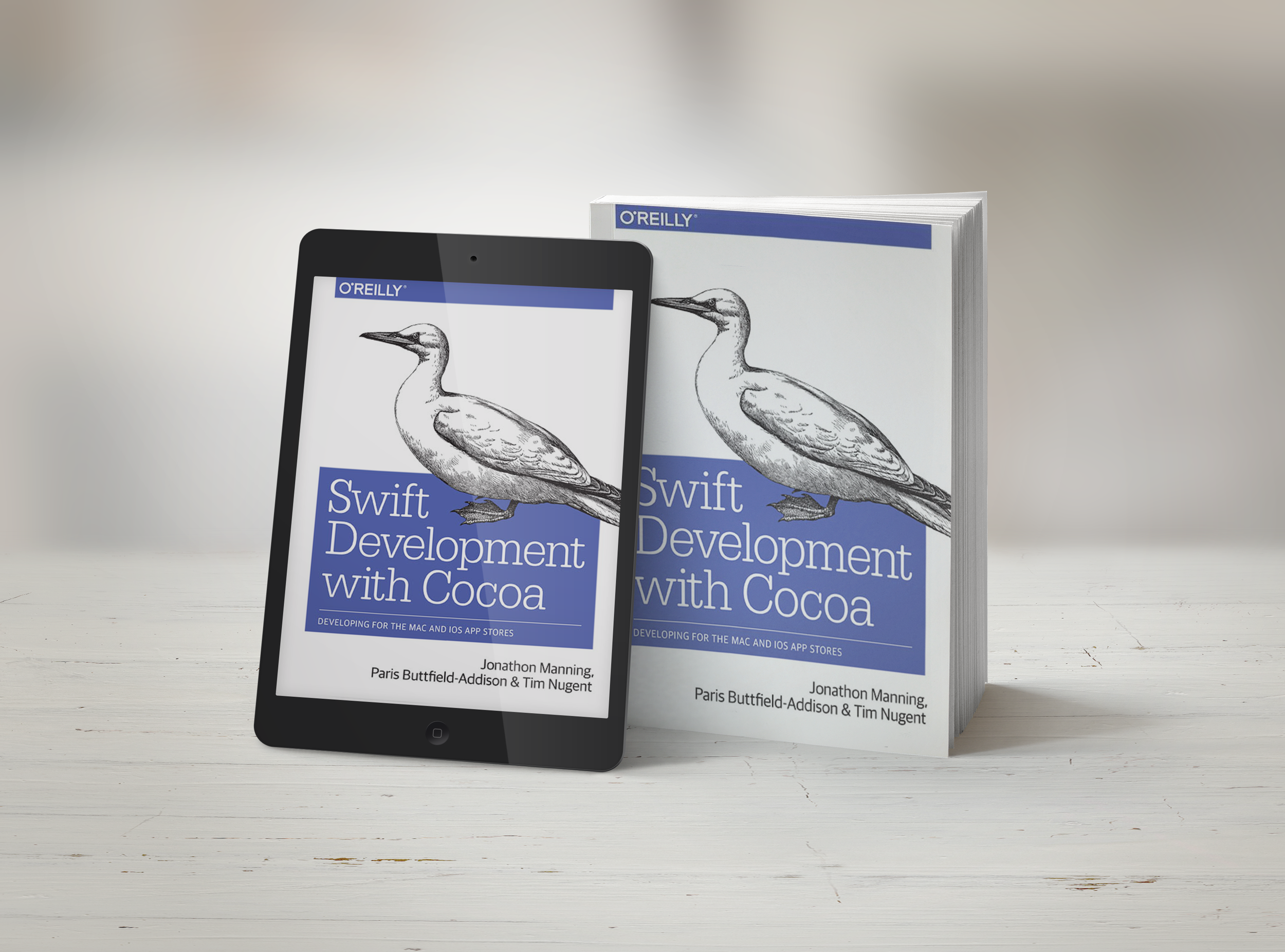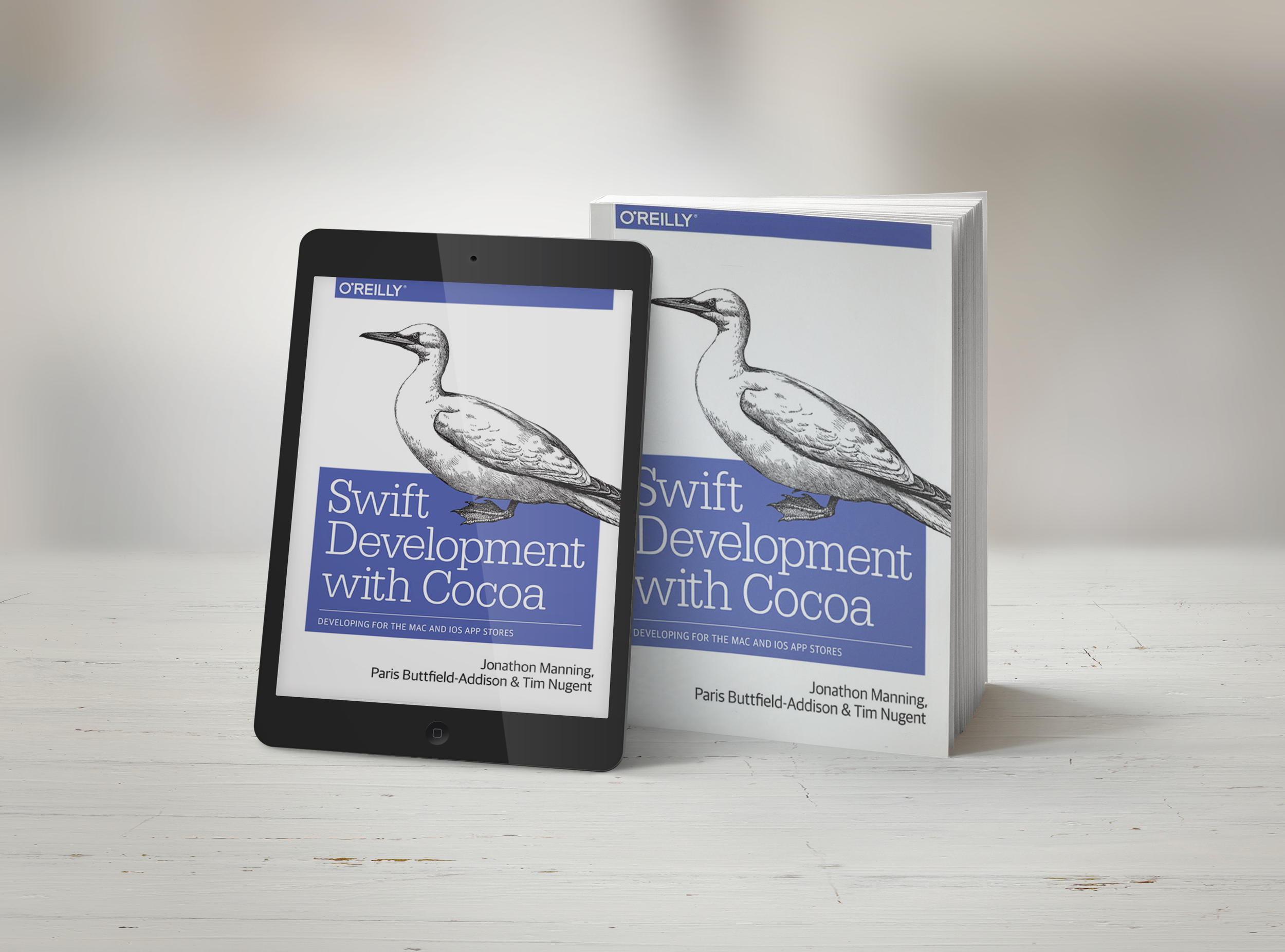On top of making pre-recorded videos (Hobart has been a hive of video production and post-production!), we also did two live webcasts for O'Reilly: one on Five Swift Essentials, and one on Building a game in under an hour with Unity. These were recorded and broadcast on Tuesday, 11 February 2015/Wednesday, 12 February 2015 (depending on your timezone), and by all accounts were a great success. Both webcasts were recorded, and the videos are available in their original format via the links above. We'll also post the code and notes right here when it's ready (in a day or two).
New Books
We're working on five more books at the moment (yes, we're possibly insane), and we'll be announcing them very soon. Stay tuned for news!
New Games
There are three games we're currently working on: Button Squid, Rocket Box, and Gnome's Well That Ends Well. Our local newspaper featured us recently as well, talking to us about our games.
Button Squid, our squid-themed puzzle game is in development, and you can follow it on the Button Squid Tumblr and on Twitter @ButtonSquid. There's also a teaser site at buttonsquid.com.
Rocket Box, a working title, is our economic space empire building game, and you can follow it on the Rocket Box Tumblr, and on Twitter @RocketBoxGame.
And finally, Gnome's Well That Ends Well, a puzzle game featuring gnome dismemberment, which you can follow on Twitter @GnomesWell, and the Secret Lab Tumblr.






